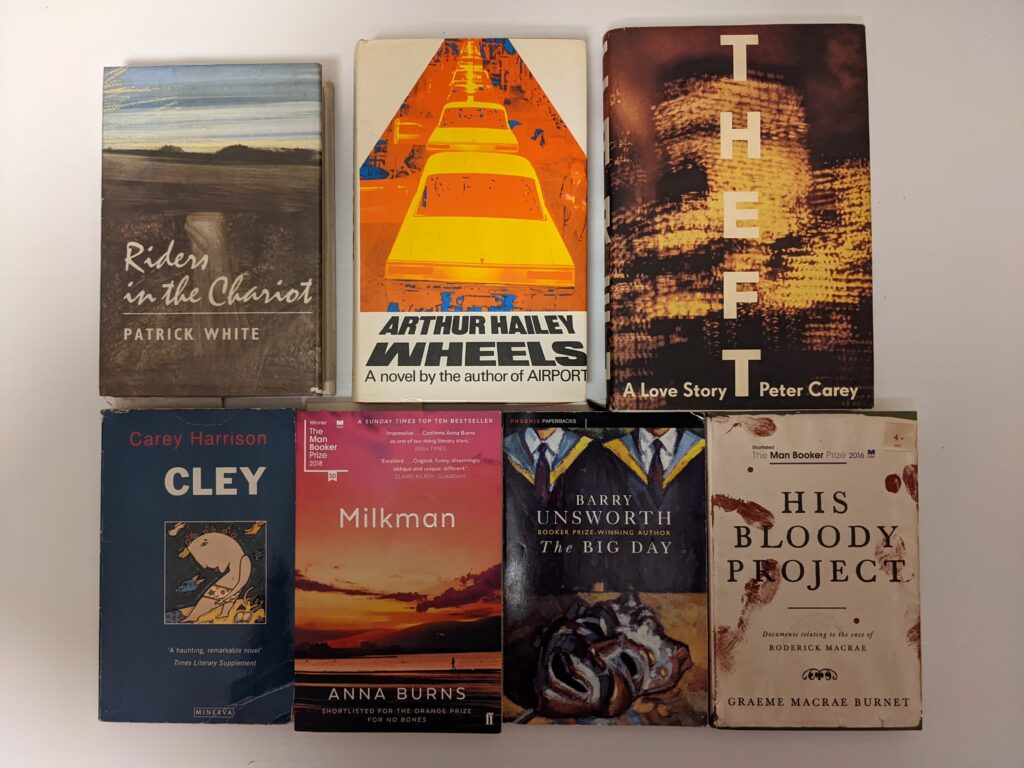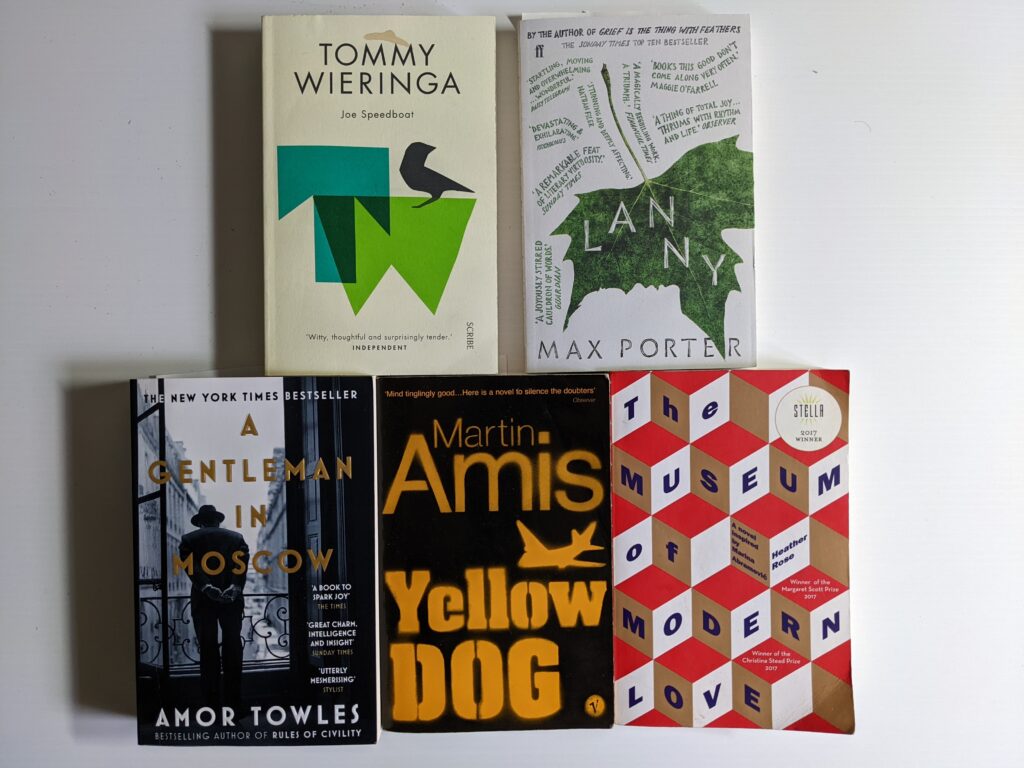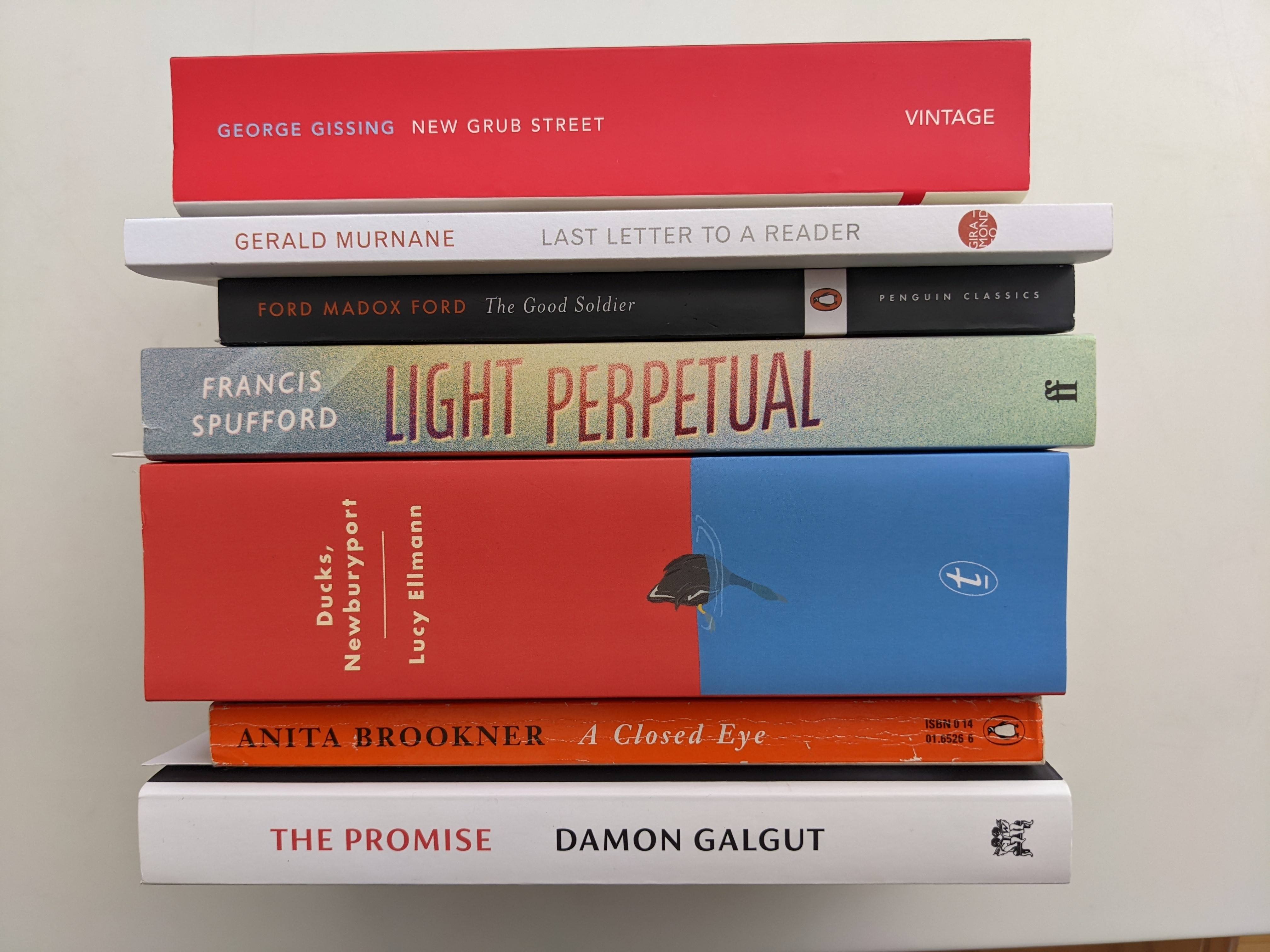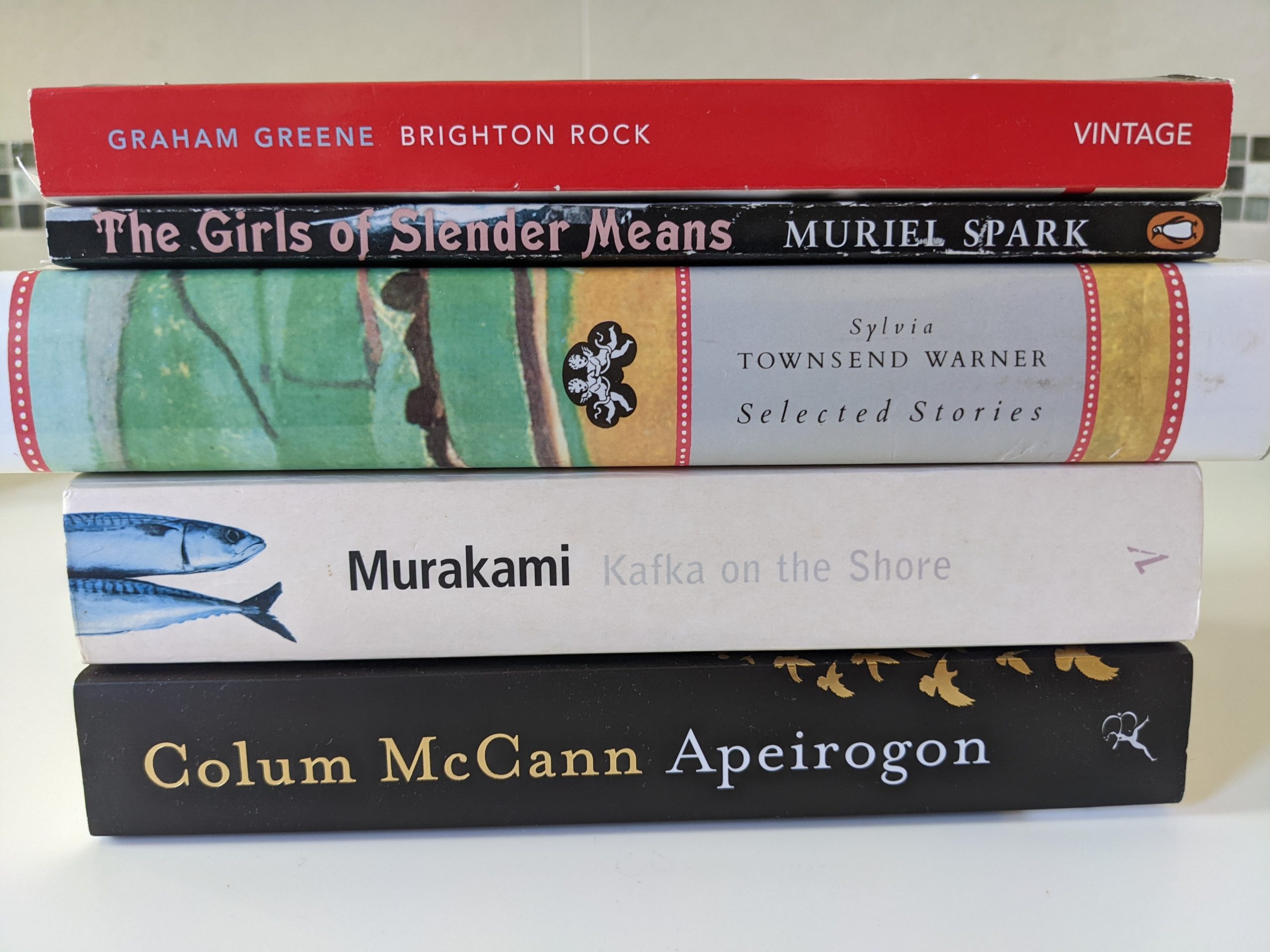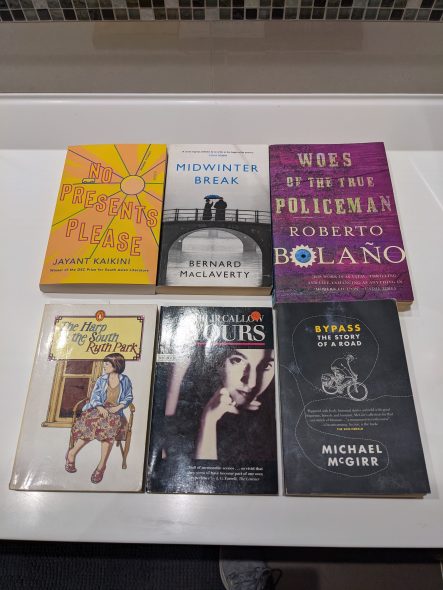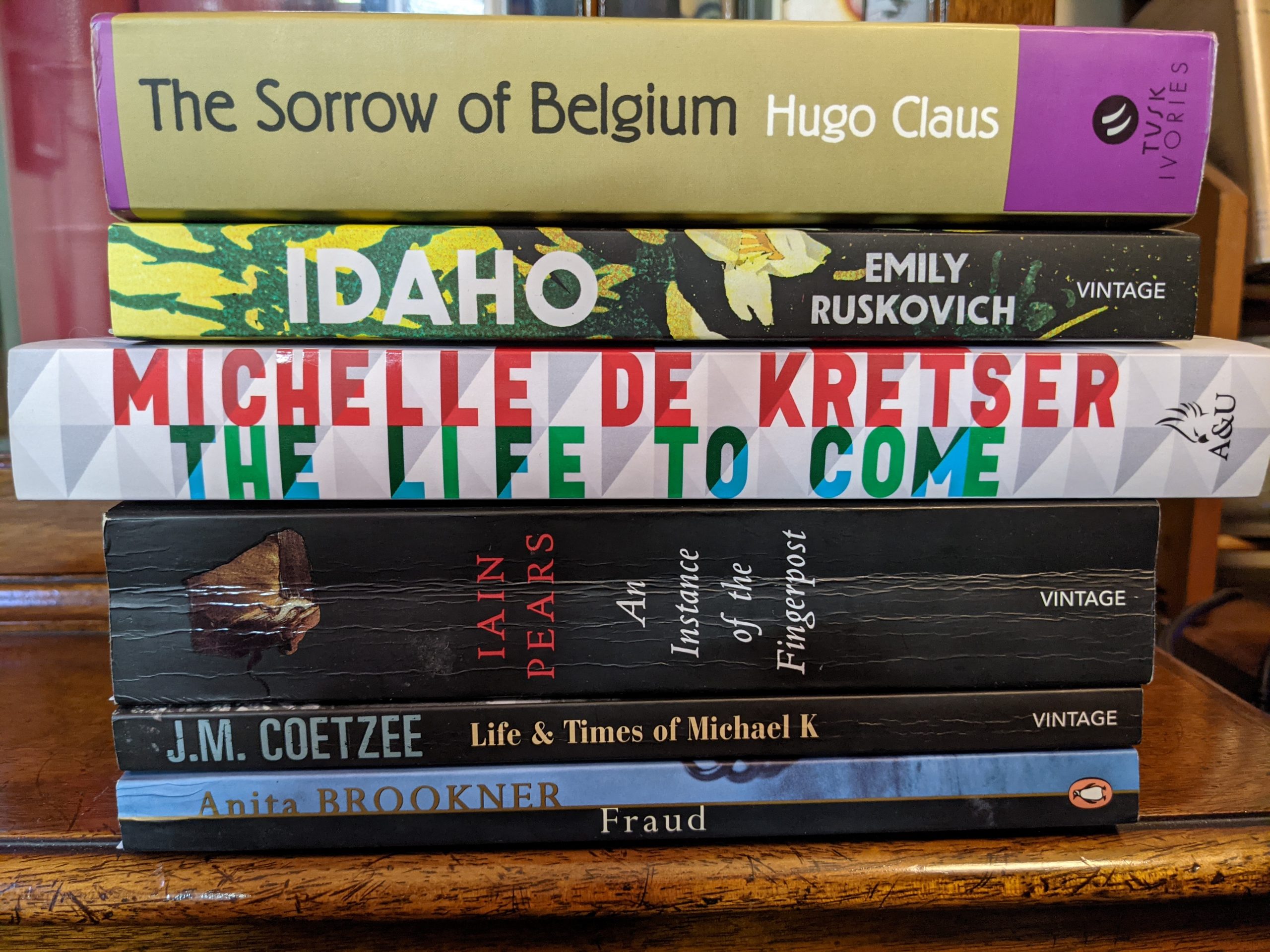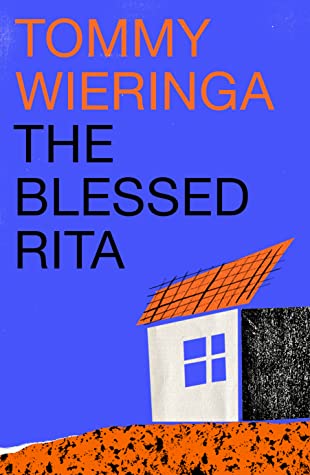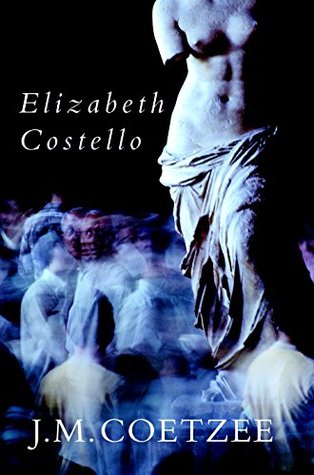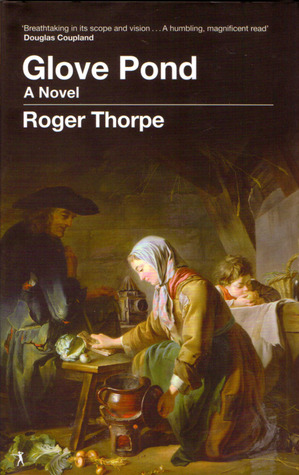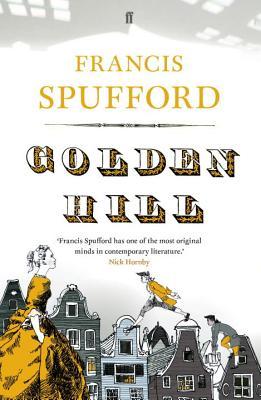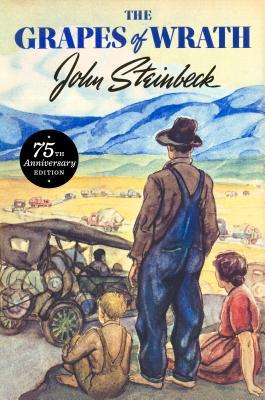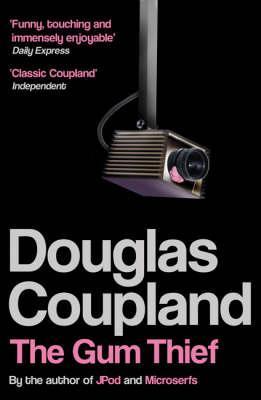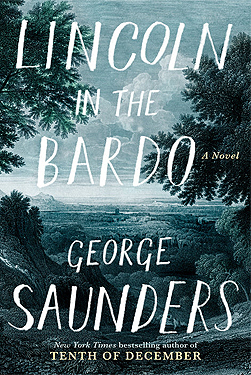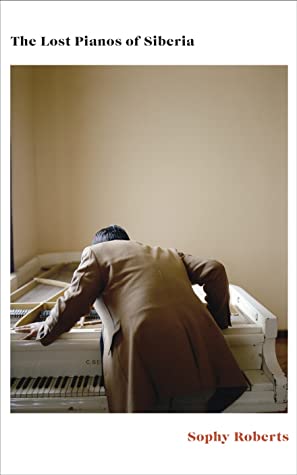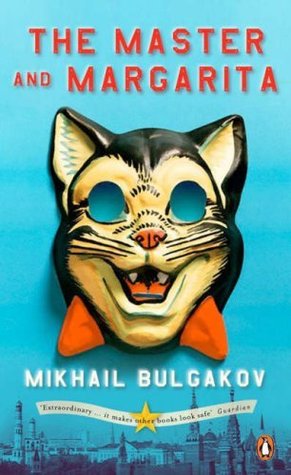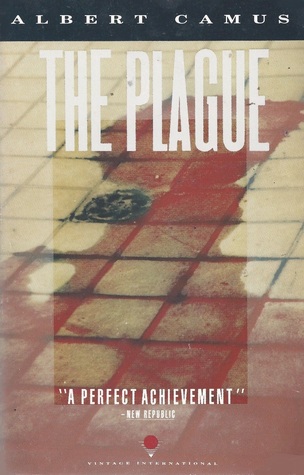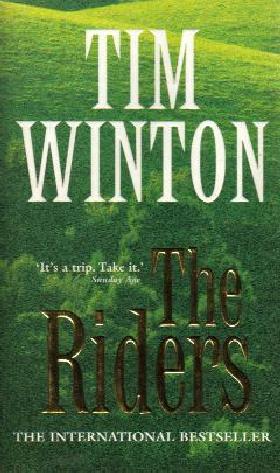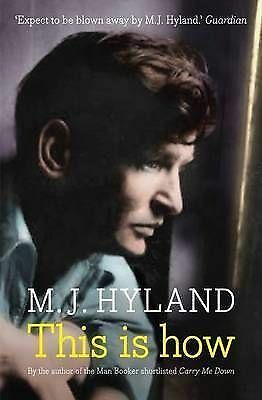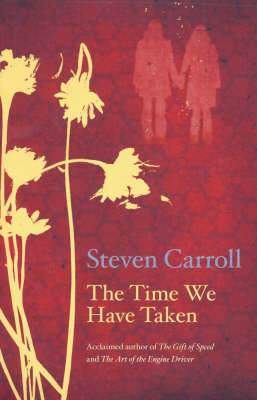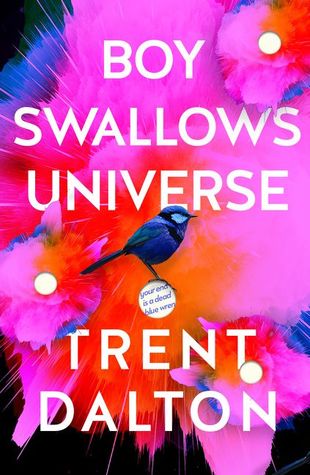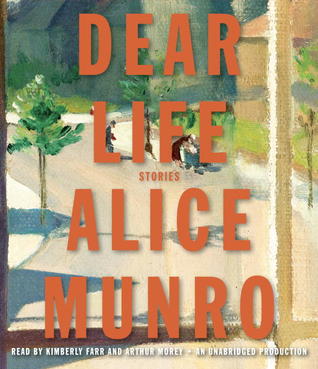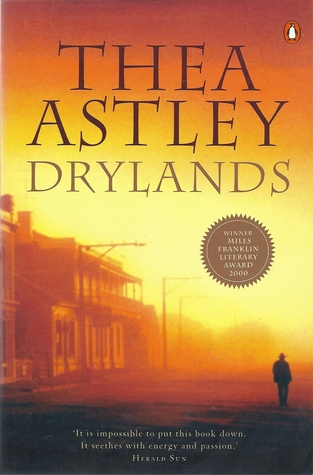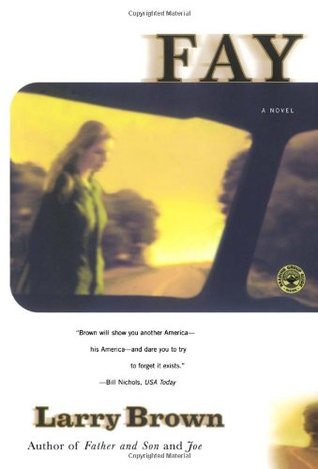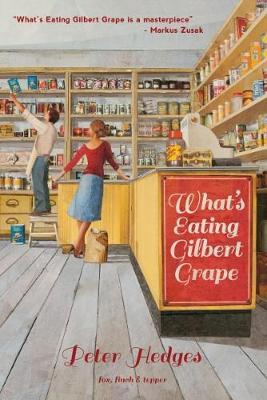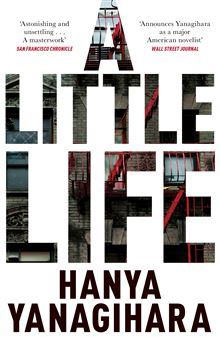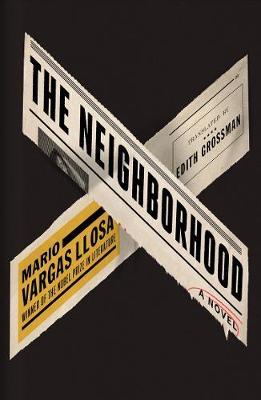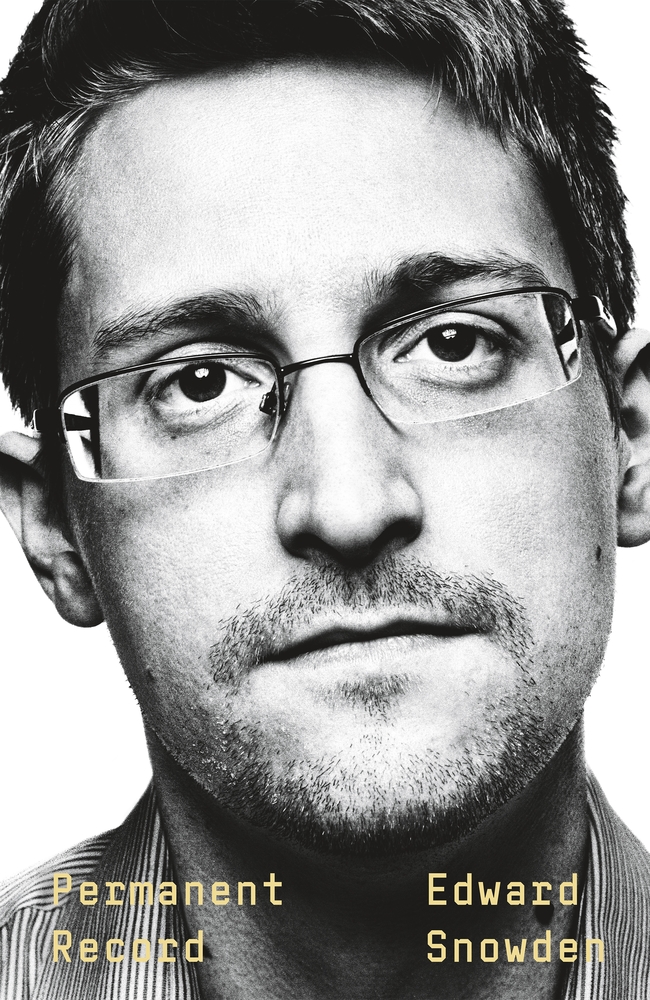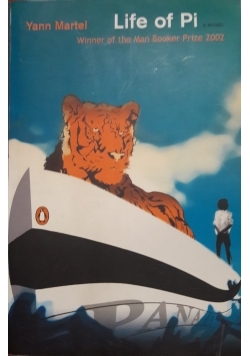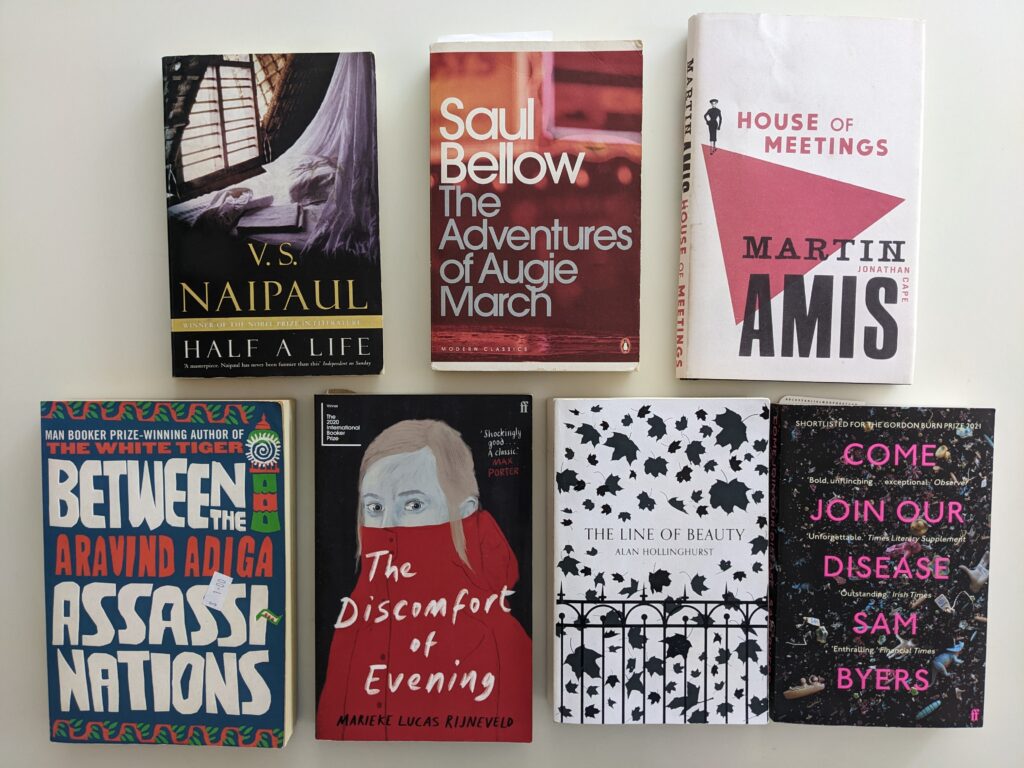
I barely remember Half a Life by Naipaul, except that I was in the caravan in Woolgoolga and I was fighting to read it over the TV that Kim was watching on the front lounge. I recall my favourite section was not the English or Indian settings, but the one the one where things are disintegrating in Mozambique, with people pulling out as the situation deteriorates. I was fine with the passive and sex-starved Willie unlike many others on Goodreads! 3 stars.
The Adventures of Augie March by Bellow was a frustratingly dense exercise – something that ended after a record 30 pages. How embarrassing for me, who’s been known to plow through some tedious stuff. It was never going to happen in a caravan, with needy dogs to entertain and such old, rich prose needing so much attention to do it justice. I feel sad thinking about how I might have managed this in my 30s but ambition and aspiration take a second seat to attention span now. Unknown stars!
Why did I decide to pickup House of Meetings by Martin Amis? Because he’s a rogue and seems to be widely disliked and I hoped I’d get some of the wild, fuck you stuff of Black Dog I suppose. Yeah, this was bad, even for a short, possibly contractually obligated book. Not much of a plot and the usual obtuse meanderings that pass for intellect maybe. It was pretty unreadable and definitely not recommendable, despite the promising blurb – tricked! Two stars.
It was easy to like Between the Assassinations by Aravind Adiga, since the stories were punchy, if bleak, and the characters kept changing and I really didn’t know how things would end up. Although the themes were critical of entrenched caste positions and disadvantage in mid 80’s India, the writing was still fresh and approachable. 4 stars.
Talking about bleak, this one takes the cake. Apparently a bestseller in the Netherlands, and winner of the Booker International in 2020, The Discomfort of Evening by Marieke Rijneveld is a deeply unpleasant read, detailing a traumatised Amish (?) family’s deterioration after the death by misadventure of the oldest son. As an animal lover, there are many scenes here which were hard to get through, and it isn’t a book for any but the most hardened of readers. The ending is simply chilling. Unlike others in this series of brief reviews, I didn’t need to flick through it again to remind myself of the tone or storyline. It’s also annoying when a 12 year old narrator sounds like a wizened adult. Ugh! 3 stars.
Another $1 Op shop cheapie, this one surprised. Although overly long, and full of scenes of gay longing and lines of coke – hardly my normal cup of tea, there was something assured about the writing and depiction of the balancing act that family-friend Nick enacted with his school-friends’ wealthy politician family in mid 80’s sloane ranger Britain. The troubled character of Catherine was particularly fantastic, her sarcastic and cutting comments skewering the privilege and falsity of this Tory family’s life. The depiction of the gay scene 40 years past is also fascinating, with the devastation of AIDS just around the corner. Very imaginable as a movie. Apparently it beat Cloud Atlas to the Booker that year – I’d have a hard time separating such different, yet amazing novels. The Line of Beauty by Alan Hollinghurst was an easy 4 stars.
Who can resist a novel called Come Join Our Disease (by Sam Byers) – and with such a provocative front cover – not me. Well, let’s just say it didn’t last long. Part one was a fairly predictable redemption story of a street person to Instagram striver, documented and engineered by a kindness-washing corporation with ulterior motives. Part two digressed into endless and repetitive depictions of unchallenged reversion to their most primitive selves by a small group of fed-up women in an industrial squat. It you’d like to read about what it feels like to shit yourself and lay in it, or eat moldy food and vomit a lot, and not wash for months, this is the novel for you. Although set in London, the entire book felt American and false – I didn’t think he wrote convincingly about the women, and even the language and pacing seemed off. The critics seem to love it. 2 stars.
